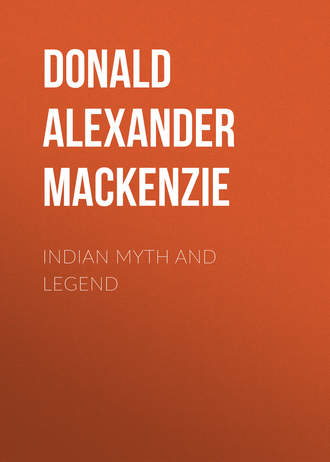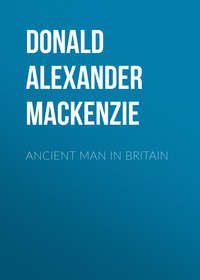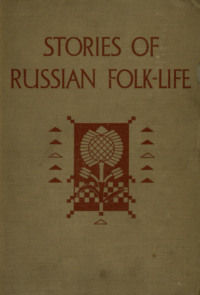 полная версия
полная версияIndian Myth and Legend
See Chapter X.
74
Oldenberg, Rigveda, iii, 1.
75
A demi-god.
76
Vedic Hymns, trans. by Oldenberg. (Sacred Books of the East, vol. xlvi.)
77
Rigveda, i, 13 and i, 26 (Oldenberg).
78
Art. “Aryan Religion”, Hastings' Ency. Rel. and Ethics.
79
The air of life = the spirit.
80
Muir's Original Sanscrit Texts, v, 58, ff.
81
Professor Macdonell's A History of Sanskrit Literature.
82
Indian Wisdom, Sir Monier Williams.
83
The Rigveda, by Professor E. Vernon Arnold, p. 16 (Popular Studies in Mythology, Romance, and Folklore).
84
The Religion of Babylonia and Assyria, by Dr. T. G. Pinches, p. 68.
85
Frazer's “Golden Bough” (Adonis, Attis, Osiris, p. 255, n., third edition).
86
Professor H. W. Hogg, in Professor Moulton's Early Religious Poetry of Persia, p. 37.
87
“The Golden Bough” (Spirits of the Corn and Wild, vol. ii, p. 10).
88
Rigveda, ii, 38.
89
Indian Wisdom, p. 20.
90
Indian Wisdom, Sir Monier Williams.
91
Indian Wisdom, Sir Monier Williams.
92
Muir's Original Sanskrit Texts, v, 130.
93
See Teutonic Myth and Legend.
94
Kaegi's Rigveda, Arrowsmith's translation. This was apparently a rain charm; its humour was of the unconscious order, of course.
95
Iliad, xxiii, 75.
96
Muir, Original Sanskrit Texts, v. 302.
97
Rigveda, x. 51 (Arnold's translation).
98
A History of Sanskrit Literature, p. 117.
99
As was also Manu of a different or later cult.
100
From Indian Wisdom.
101
A History of Sanskrit Literature, p. 117.
102
Early Religious Poetry of Persia, Professor J. H. Moulton, p. 42.
103
A History of Sanskrit Literature, Professor Macdonell, p. 68.
104
Rigveda, x, 10.
105
From Indian Wisdom.
106
Satapatha Brahmana, translated by Professor Eggeling, Part IV, 1897, p. 371 (Sacred Books of the East).
107
From Adi Parva section of Mahabharata.
108
Saraswati's rival. Brahma took Gayatri, the milkmaid, as a second wife, because his chief wife, Saraswati, despite her wisdom, arrived late for a certain important ceremony, at which the spouse of the god was required.
109
Unfaithful wives were transformed into jackals after death.
110
Lokapala-Sabhakhyana section of Sabha Parva.
111
Sons of the goddess Aditi. They are attendants of Varuna, their chief, as the Maruts are attendants of Indra.
112
Adi Parva section of Mahabharata, Roy's trans., p. 635.
113
The Tribes and Castes of Bengal. H. H. Risley (1892), vol. i, lxv, et seq.
114
Muir's Original Sanskrit Texts, v, 15.
115
Professor E. Vernon Arnold's The Rigveda, p. 54.
116
In the combat between Thor and the giant Hrungner, the thunder-hammer similarly cleaves a mass of flint hurled by the enemy.—Teutonic Myth and Legend.
117
Mahabharata, Vana Parva section, pp. 679-80, Roy's trans.
118
“Overwhelmed by misfortune” (Roy).
119
Heaven, Earth, and the Underworld.
120
Mahabharata.
121
Asuras are sometimes called Rakshasas also.
122
Pron. pe-shatch'as.
123
Bloomfield's Atharvaveda iv, 36 (Sacred Books of the East, vol. xlii).
124
Mahabharata, Roy's trans. (Sabha Parva, p. 32).
125
Vana Parva section of Mahabharata.
126
Dasyu and Dasa are “applied in many passages of the Rigveda to superhuman enemies”. The colour reference in Dasa is probable, but it is also used in other senses. For a full discussion on conflicting views regarding Dasyu and Dasa see Vedic Index of Names and Subjects. Macdonell and Keith, vol. i, pp. 347-9 and 356-8.
127
Mahabharata, Roy's translation (Adi Parva, section, pp. 495-6).
128
Like an Egyptian Pharaoh, the rajah is here a god among men. His presence was necessary to ensure the success of rain-bringing ceremonies.
129
A convenient term as explained in our Introduction.
130
“A Rishi, ‘seer’, is primarily a composer of hymns.... The Rishis ultimately become the representatives of a sacred past.” Vedic Index of Names and Subjects vol. i, pp. 115-117 (1912).
131
Satapatha Brahmana, trans. by Prof. Eggeling (Sacred Books of the East, No. XLIII, p. 170).
132
1 Kings, x, 22.
133
Satapatha Brahmana, translated by Professor Eggeling, Part I, p. 374 (Sacred Books of the East).
134
There are formulas in Gaelic for blessing a house, &c. The customs of nailing horse-shoes upon doors and hanging up holly at Christmas for protection against evil spirits indicate the persistence of ceremonial practices long after ancient beliefs have been forgotten.
135
Bloomfield's Atharva-veda (Sacred Books of the East, vol. xlii).
136
Bloomfield's translation.
137
A History of Sanskrit Literature, Professor Macdonell, p. 199.
138
Omens and Superstitions of Southern India, by Edgar Thurston, p. 799 et seq., 1912.
139
Muir's Original Sanskrit Texts, vol. i, pp. 9-10.
140
P'an Ku in his giant form. Like the Egyptian Ptah, he is now a dwarf and anon a giant.
141
A Journey in Southern Siberia, by Jeremiah Curtin, pp. 44-8.
142
Rigveda, i, 162, and i, 163.
143
That is, the so-called “royal house”, or house of the “king of the sacred rites”.
144
A broad-headed people.
145
Horse sacrifice.
146
The Brihad Aranyaka Upanishad.
147
Dr. E. Röer's translation (Calcutta).
148
Deussen's Philosophy of the Upanishads, p. 39.
149
Muir's Original Sanskrit Texts, vol. i, pp. 29-30.
150
See Egyptian Myth and Legend.
151
Muir's Original Sanskrit Texts, vol. i, p. 46.
152
Abridged from Muir's Original Sanskrit Texts, pp. 43, 44, and Wilson's Manu, p. 50.
153
Indian cuckoo.
154
In his character as the Typhoon.
155
The present Age, according to Hindu belief.
156
“Om” originally referred to the three Vedas; afterwards it signified the Trinity.
157
See Egyptian Myth and Legend.
158
Roy's translation.
159
Roy's translation. This conception of the World God resembles the Egyptian Ptah and Ra. See Egyptian Myth and Legend.
160
Mahabharata, Vana Parva, section clxxxix, P. C. Roy's translation.
161
History of Sanskrit Literature, p. 115.
162
See Egyptian Myth and Legend.
163
Paul Deussen's translation.
164
Psyche, Erwin Rohde.
165
De Bello Gallico, vi, xiv, 4.
166
A History of Sanskrit Literature, p. 411.
167
Rigveda, i, 154, 155.
168
Hinduism, by L. D. Barnett.
169
Rigveda, ii, 33.
170
The “Divine Song”.
171
Extracts from Roy's translation of Mahábhárata.
172
Or Muttra.
173
Karma, “works” and their consequences.
174
Buddha's negative attitude towards immortality and the conception of a Supreme Being was departed from by those of his followers who have taught that Nirvana is a conscious state of eternal bliss.
175
Burnouf, quoted by Max Müller, Chips from a German Workshop, i, 222.
176
Petrie, The Religion of Egypt, pp. 92-3.
177
Bede, Historia Ecclesiastica, lib. i, chap. xxx.
178
Juggernaut.
179
Condensed from Vana Parva section of Mahábhárata, sec. clxxxvii, Roy's trans.
180
Va'suki.
181
Brahma, as Prajapati, assumes, in one of the myths, the form of a tortoise to “create offspring”.
182
Celtic Myth and Legend, p. 49.
183
Or Kailāsa.
184
Combined with Vishnu he is Hari-hara.
185
Often spelled Suttee.
186
A familiar Bengali rendering is “Gonesh”, which is often given as a pet name to an exemplary boy.
187
In Vishnu Purana the Rishis are divided as follows: 1, Brahmarishis, sons of Brahma; 2, Devarishis, semi-divine saints; 3, Rajarishis, royal saints who had practised austerities. There are variants in other sacred books which refer to Maharishis, Paramarishis, &c.
188
Or Nãrada.
189
Rigveda, viii, 53. 9-11, and vii, 18.
190
Pron. bah´ra-ta or bhah´ra-ta.
191
The Indian cuckoo.
192
Pron. vish-wah-mit´ra.
193
The Gandharva marriage was legalized by Manu, but only for members of the Kshatriya (kings and warriors) caste.
194
A sign of martial and royal origin.
195
Pron. Gaj-as-ah-va´ya.
196
Queen.
197
This story is the plot of “Shakuntala”, the Sanskrit drama of the poet Kalidasa, who lived in the fifth century A.D. He makes the king give the heroine a ring, which she loses while bathing. A fish swallows the ring, and it is found by a fisherman, who delivers it to the king. Then suddenly His Majesty remembers his bride, whom he had forgotten and already denied. The misfortunes of the monarch and maid resulted from the curse of the sage Durvasas. Pron. Sha-koon´-ta-lah.
198
Pron. chun´dra (“ch” as in “change”). Also Soma, the moon god.
199
Subsequently the name for India as a whole.
200
Art thou a demon or nymph or fairy or dwarf or demi-god?
201
His other names are Deva-bratta and Ganga-bratta, and he was ultimately known as Bhishma.
202
The Pharaoh of the Anpu-Bata Egyptian story was similarly attracted by a perfume which issued from a lock of hair. See Egyptian Myth and Legend.
203
Pron. sat´ya-vat-ee.
204
Pron. vyas´a (two syllables). The reputed author of the Mahá-bhárata.
205
Pron. chit-ran´gad-a (“ch” as in “change”) and vi-cheet´ra-veer-ya.
206
An Aryan tribe in the north-west of India. Part of their territory was included in the Persian empire. Keith identifies them with the Gandarians who accompanied Xerxes in his campaign against the Greeks.
207
A festival at which a princess selected a husband from among the kings and warriors assembled together.
208
A drive of about 500 miles. Indian poets, however, have never troubled about geographical difficulties.
209
The Kasi tribe was Aryan but was disliked by the eastern Aryans because its beliefs were not according to the standards imposed by the Brahmans. Conflicts were frequent.
210
Pron. has-teen´a-poor. Marriage by capture was called a Rákshas marriage, and was sanctioned by Manu.
211
She helps to kill Bhishma in the great war, having changed her sex with a Yaksha.
212
A similar practice is referred to in Genesis xxxviii; it was a regular institution among the ancient Hebrews.
213
This custom is called “niyoga”, and was legalized by Manu, but only for the lower castes.
214
Pron. dreet´a-rash´´tra, Pan´doo, and Ve-dur´a (“u” as “oo”).
215
Pron. pan´davas and kow´ravas.
216
Pron. pree´tha and ma-dree´.
217
Krishna of the Yadavas was descended from the moon through Yadu: Bharata was descended through Puru, Yadu's brother.
218
A mantra.
219
Identified with Cashmere by some of the authorities.
220
Pron. yoo-dish´thi-ra (h sounded after t).
221
Pron. arjoo´na´´.
222
The upper part of the Punjab, which was ruled over ultimately by the sons of Duryodhana. Another explanation is that the Kauravas, or Kuru brothers, were called after their eponymous ancestor, King Kuru. The Kuru people are believed to be a group of the tribes mentioned in the Rigveda. The Kurus may have been late-comers who formed a military aristocracy, and displaced earlier settlers who opposed their rule.
223
Pron. bhee´ma.
224
The Mahá-bhárata favours the Pandavas from the outset.
225
Pron. door-yo´dhan-a.
226
Pron. droo´pa-da.
227
Pron. prish´ata.
228
Pron. pan-chal´a.
229
Pron. ash-wat-tha´ma. Aswa, a horse; sthama, sound or strength.
230
Apparently Drona had a claim to part of the kingdom ruled over by Drupada.
231
Like the Parthians, the ancient Hindus were expert archers on horseback.
232
This is a notable example of the characteristic exaggerations of late Brahmanical compilers. Other exaggerations are of milder form.
233
Kripa, like Drona, was of miraculous birth. He and his sister were found in a forest, and were adopted by King Shantanu.
234
Half man and half eagle, and enemy of the serpent race.
235
The Kurus and Panchalas were allies.
236
The modern-day Hindu regards Yudhishthira as an ideal man.
237
Allahabad, then probably a frontier town of the area of Aryan control, pronounced Var´an-a-vart´´ha.
238
The god of wind.
239
Bald as a pot. Pron. gat-ot-katch´a.
240
Pron. eka chak´ra.
241
As a rule the Asuras are the enemies of the gods and the Rakshasas the enemies of mankind. See Chapter IV.
242
Charms.
243
A man-devouring demon was supposed to sit under a bridge in Caithness every night. When a late wayfarer began to walk over, the monster growled, “Tramp, tramp, tramp”, so as to terrify him and obtain him for food. According to local belief, the demon “had eyes like a saucer, a nose like a poker, and a mouth like a cave”. The Egyptian demon Set was red like the Indian Rakshasa. Red-haired people are disliked in India still; a native girl with auburn locks is not cared for as a bride.
244
Pron. dhrish-ta-dyum´na.
245
Pron. drow´pa-dee´´
246
Pron. bal-a-rah´ma.
247
Pron. indra-prast´ha.
248
In Ganjam district, Madras.
249
Pron. pra-bha´sa.
250
Pron. soo-bhad´ra.
251
Krishna's father, Vasudeva, was the brother of Pritha, mother of Arjuna.
252
Pron. ab-hi-mun´yoo (“u” as in “bun”).
253
In one of the Egyptian temple chants Osiris is called “the progeny of the two cows Isis and Nepthys”.
254
Like the European household elves and fairies.
255
Pron. ja-ra-sund´ha.
256
That is, in Northern India.
257
Pron. sish-oo-pah´la.
258
Pron. chay´dee.
259
A gift of fruit or flowers, like an offering to the image of a god.
260
Krishna represented the worshippers of Vishnu, of whom he was an incarnation. Sishupala, who was reputed to have been born with three eyes, was an incarnation of Shiva. Rukmini was an incarnation of Lakshmi.
261
Candahar
262
Pron. doo-sas´a-na.
263
Similar to “Amen”.
264
The sun god.
265
Like the “Pot of Worth” possessed by the Celtic Finn-mac-Coul.
266
Like the Celtic giant Caoilte, who went swifter than the March wind, and the Teutonic storm-giant Ecke, who gave chase to Dietrich in his character as Thunor (Thor).—See Teutonic Myth and Legend, Chapter xxxviii.
267
Like the Teutonic elf-king Laurin, whose wonderful rose garden is among the Tyrolese mountains.—Teutonic Myth and Legend.
268
In the next life in this world, according to the belief in transmigration of souls.
269
Like Dietrich von Bern, he assumes the character of the thunder god, and reminds us of Thor going eastward to battle against the Jotuns.
270
For slaying a sea giant, the Celtic Finn-mac-Coul was awarded by the king of Erin the “Horn of Worth”, which could be heard “over seven hills”. Like Arjuna's war shell, it was evidently the “thunder horn”.
271
Demons and giants.
272
Dhritarashtra being still alive and the Pandavas having refused to attend, Duryodhana was unable, as he desired, to perform the greater sacrifice.
273
A necessary religious act of purification before prayer. Karna thus imperilled his soul's welfare to be avenged upon his rival.
274
A supernatural gift in such circumstances carried with it fatal consequences.
275
Pron. jay-a-drat´ha.
276
Babu P. C. Roy comments on this head: “The cow is the only food in this sense. The cow gives milk. The milk gives butter. The butter is used in Homa (the offering). The Homa is the cause of the clouds. The clouds give rain. The rain makes the seeds to sprout forth and produce food.”
277
A form of the goddess Kali, wife of Shiva.
278
Pron. vir-at´a.
279
Pron. kee-chak´a (“ch” at in “change”).
280
Pron. oot´ar.
281
The late Professor H. H. Wilson considered that the Kamboja were troops of Khorasan, Balkh, and Bokhara, that the Sakas, the Sacæ of the ancients, were some of the Scythians from Turkestan and Tartary, and that the Yavanas, “Ionians”, were the Greeks of Bactria. The peoples of south and east included half-breeds and aborigines.
282
A long section of the Mahábhárata occurring here, and forming a sort of episode or discussion by itself, is called “Bhagavadgita”, and is dealt with more fully in Chapters VI, VII.
283
Although the brother of Madri, mother of the two younger Pandava princes, he was an ally of the Kauravas.




